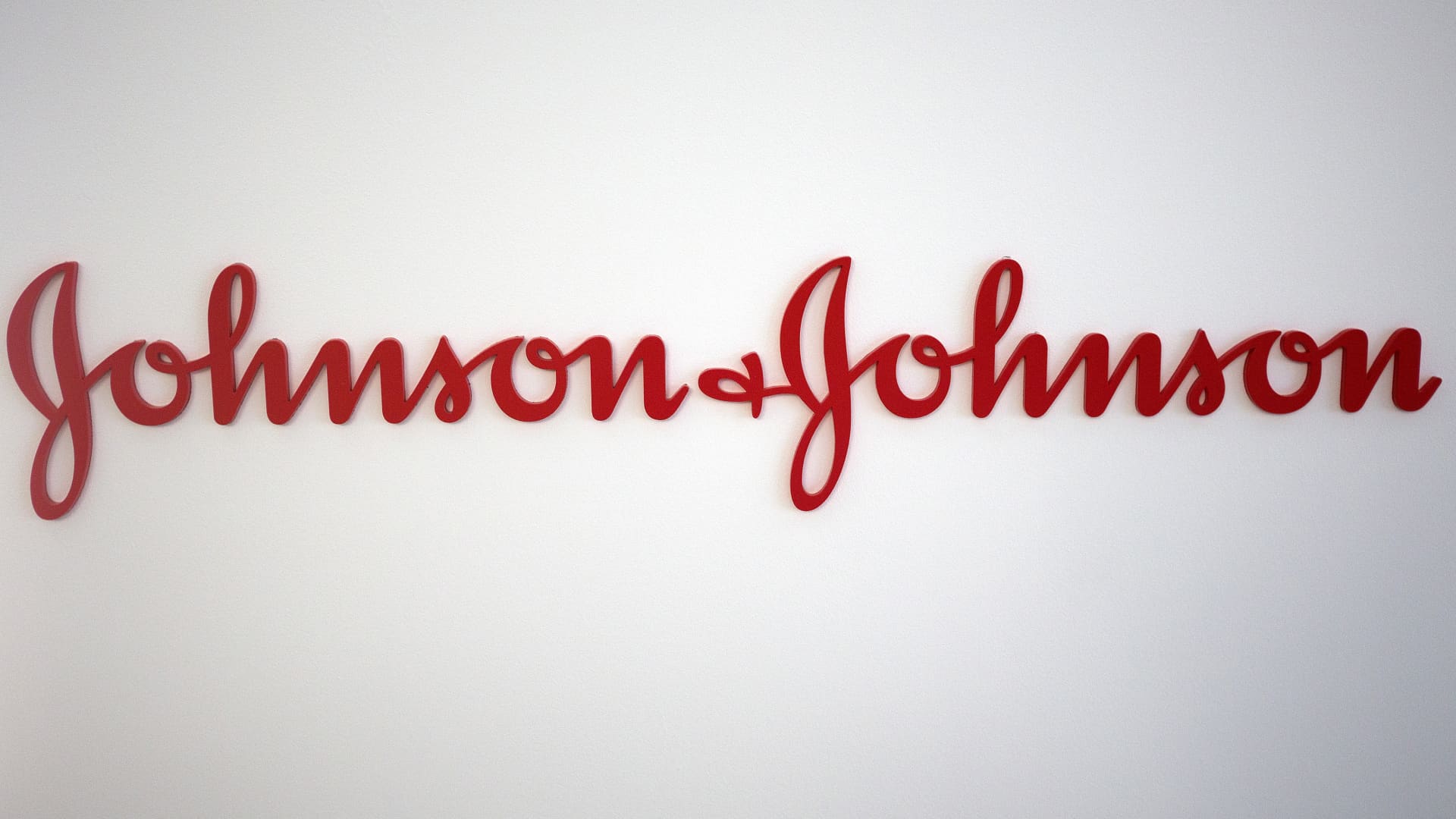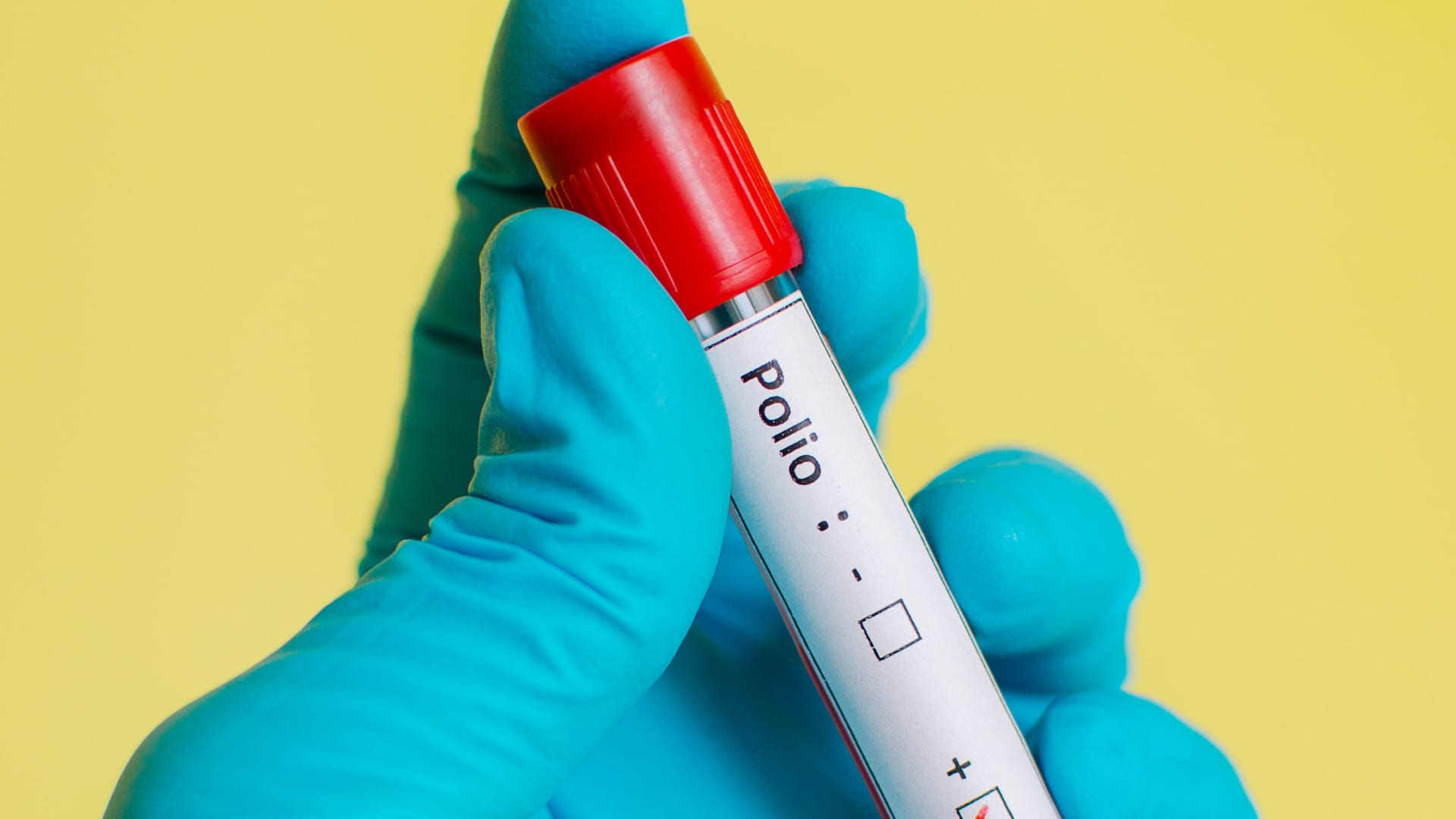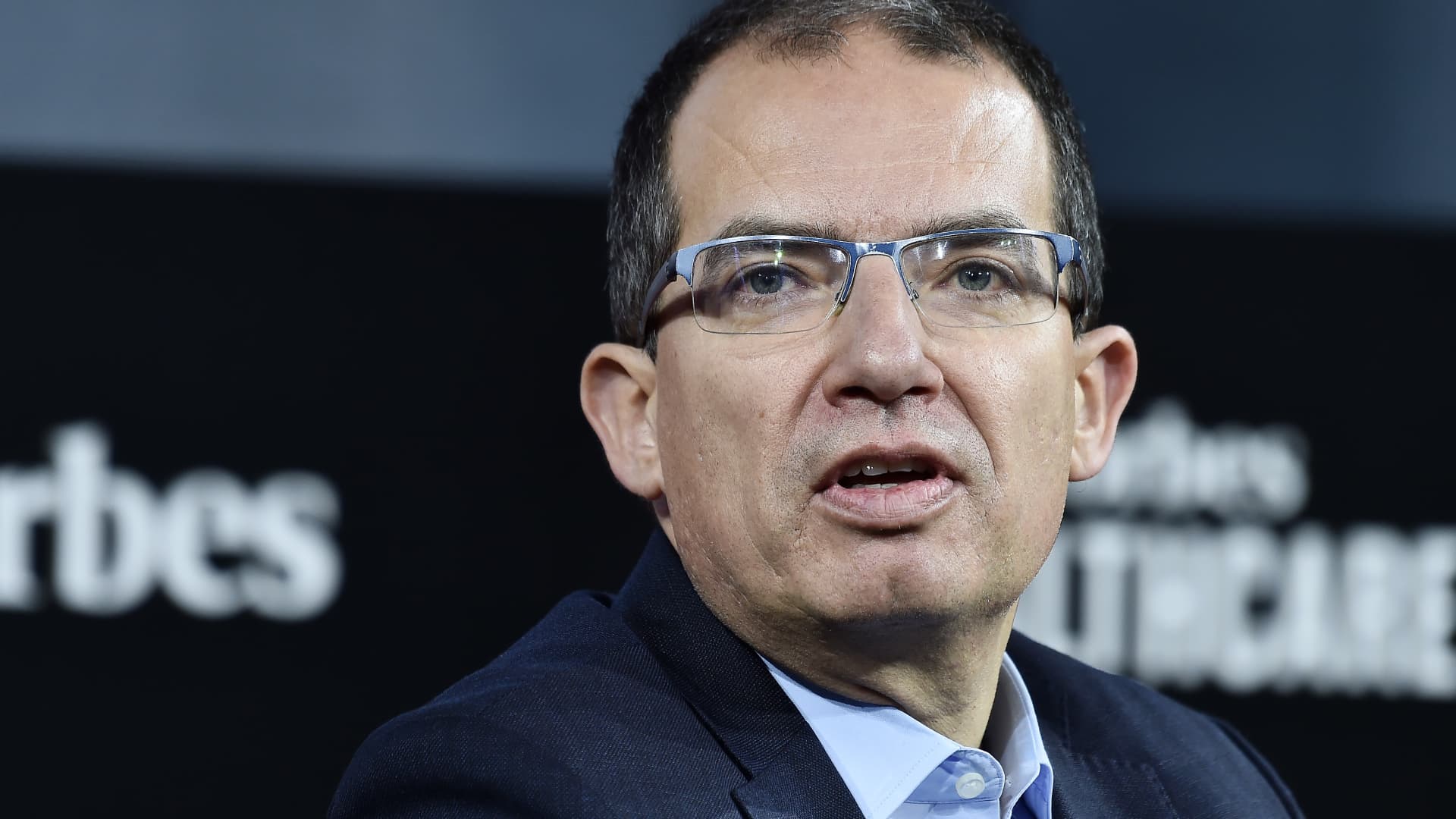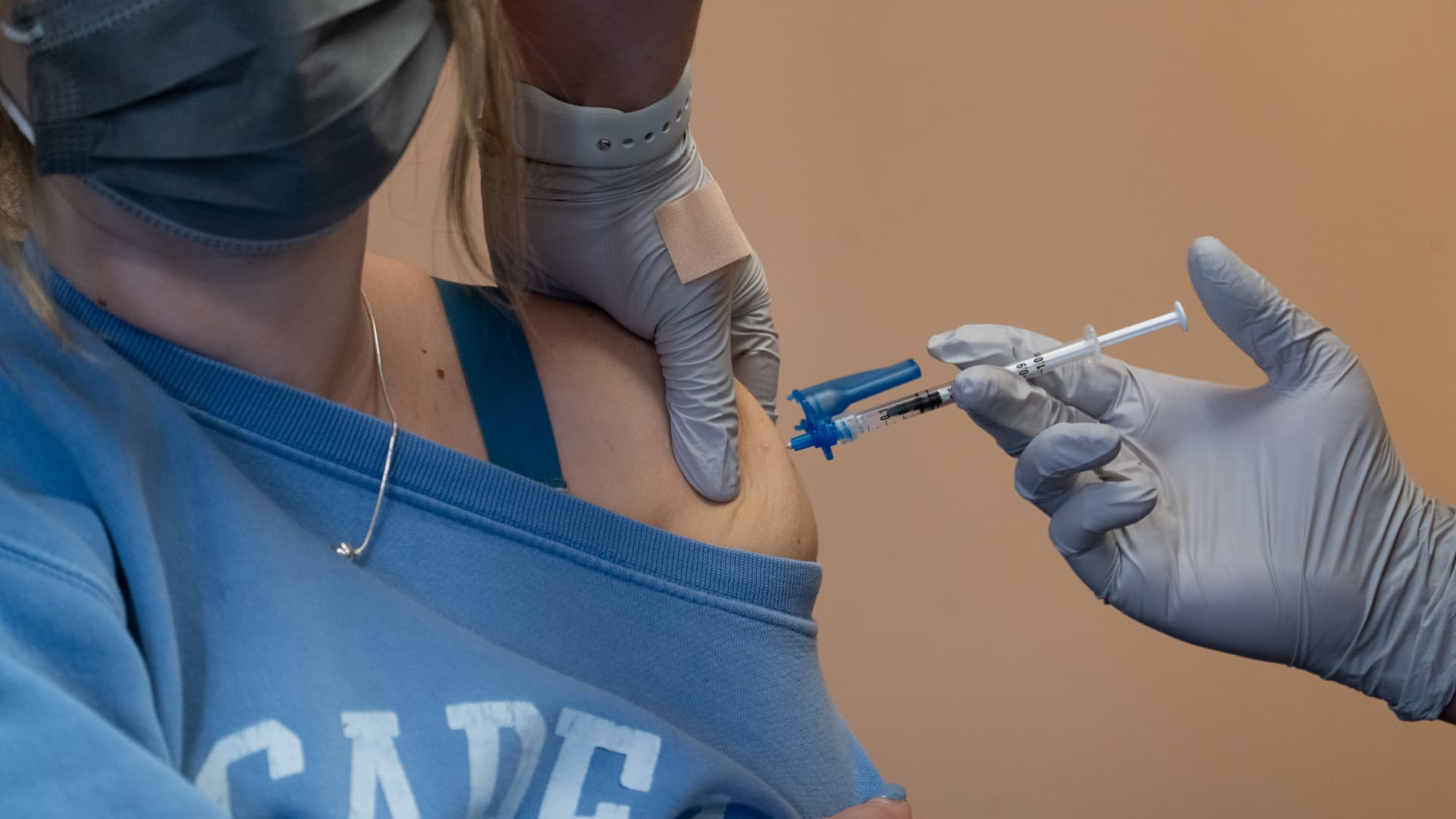We're buying more of this health-care company amid an overdone sell-off
The company has lost billions in market capitalization over the past few trading sessions.
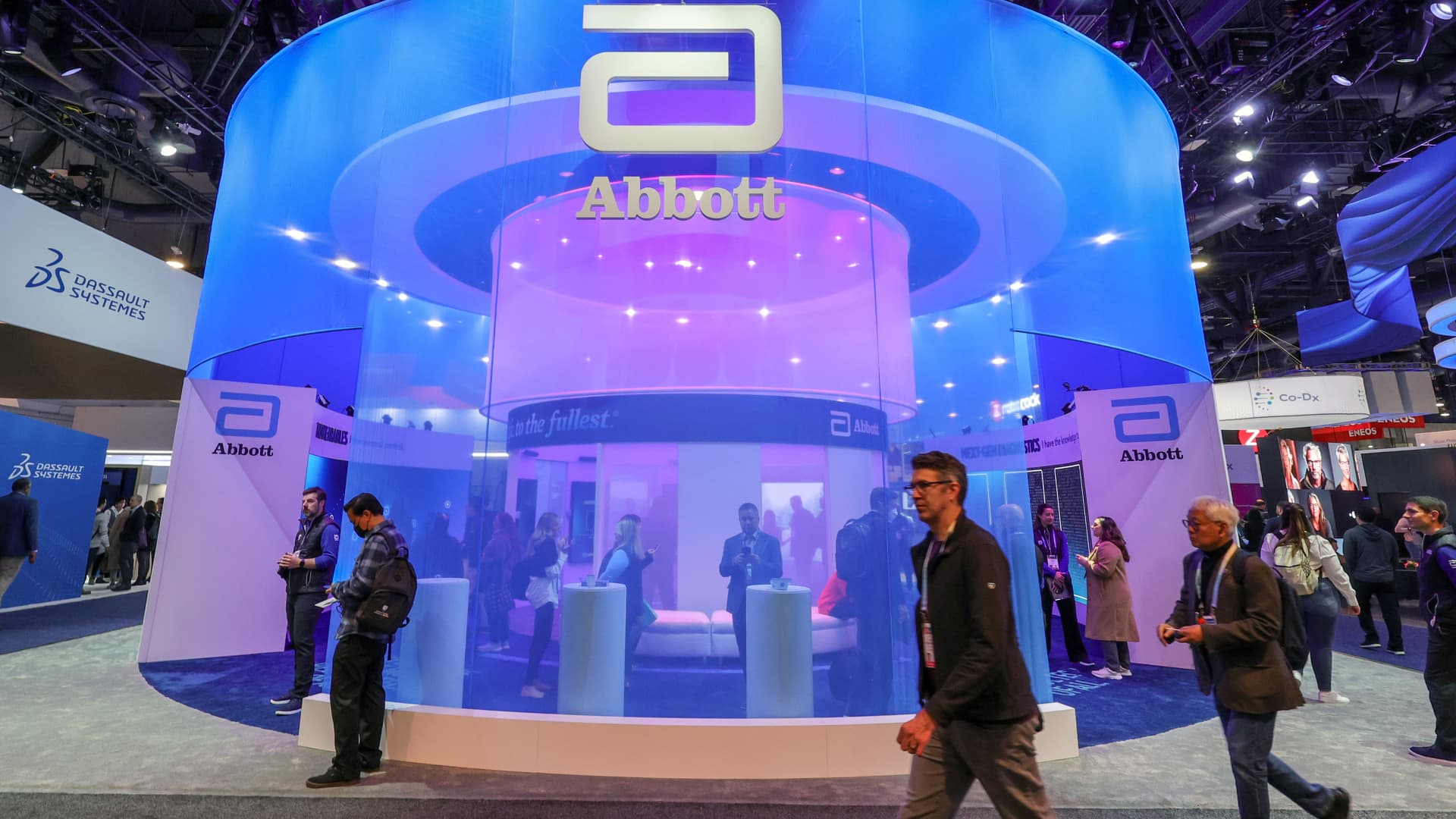
Attendees walk by the Abbott booth during CES 2024 at the Las Vegas Convention Center on January 10, 2024 in Las Vegas, Nevada.
Ethan Miller | Getty Images
Shortly after the opening bell, we will be buying 140 shares of Abbott Laboratories at roughly $112. Following the trade, Jim Cramer's Charitable Trust will own 700 shares of ABT, increasing our weighting in the portfolio to 2.42% from 1.95%.
We are buying more Abbott Laboratories into its recent weakness as we continue to believe the market is overestimating the risk of infant formula litigation.
Abbott shares began its slide Friday after a jury ordered Reckitt Benckiser to pay $60 million to a plaintiff whose premature baby died of necrotizing enterocolitis, also known as NEC, after being fed Reckitt's Enfamil formula. Abbott was not involved in this case.
Whenever headlines like this break, the market tends to shoot first and ask questions later. In this example, the market looked at Abbott's roughly 1,000 pending lawsuits and multiplied it by the $60 million payout to one plaintiff — who was seeking a smaller figure of $25 million — and calculated that Abbott's worst-case scenario exposure could be as much as $60 billion.
Here is Abbott's official statement: "Abbott has spent decades researching, developing, testing and producing formulas and fortifiers for premature infants, and countless infants have benefitted tremendously from these products. These allegations are without merit, advancing a theory promoted by plaintiffs lawyers rather than the medical community, which considers these products part of the standard of care for premature infants."
There are a few key things to know from this statement. First, there is no scientific data that shows Abbott's formula causes NEC even though the pending lawsuits allege these premature infants developed NEC as a result of the baby formula. Second, premature infants don't have many feeding options for nutrition beyond Abbott's and Reckitt's products. It's the standard of care because there is a lack of alternatives. This is a completely different situation from Johnson & Johnson's talc litigation.
Since the news broke, Abbott's stock price has fallen roughly 6%, compared with 1.4% gain in the S&P 500, and has lost about $14 billion of market cap. We are not lawyers, but this decline looks way too excessive based on the facts around the situation.
Abbott Labs' stock performance over the past month.
In the event Abbott tries to settle all of the outstanding lawsuits, the final number would likely be far below the market cap the company has lost, making this recent pullback a buying opportunity. We also bought some Abbott stock on Friday.
Wall Street analysts have weighed in on the matter.
JPMorgan said last week they think "the ultimate number would likely be substantially less than the $60 billion implied…we'd put the number at a small fraction at best in many years from now."
In Evercore ISI's scenario analysis based on historical context, analysts think a settlement could be well under $250 million based on current cases outstanding. Wells Fargo is in similar territory. The firm estimated a potential settlement of roughly $280 million based on their assumptions of recent litigation settlement efforts.
Meanwhile, Jefferies analysts wrote, "the ultimate outcome is difficult to determine, but would most likely result in a manageable fine for ABT."
We don't want to make light of the situation because NEC is terrible. And we can't ignore the overhang this news has created around Abbott Labs, a high-quality health-care company that has a lot more going for it beyond baby formula. It could linger for some time. However, when we compare the billions of lost market capitalization over the past week to what a settlement could potentially look like, our conclusion is that this sell-off is overdone.
(Jim Cramer's Charitable Trust is long ABT. See here for a full list of the stocks.)
As a subscriber to the CNBC Investing Club with Jim Cramer, you will receive a trade alert before Jim makes a trade. Jim waits 45 minutes after sending a trade alert before buying or selling a stock in his charitable trust's portfolio. If Jim has talked about a stock on CNBC TV, he waits 72 hours after issuing the trade alert before executing the trade.
THE ABOVE INVESTING CLUB INFORMATION IS SUBJECT TO OUR TERMS AND CONDITIONS AND PRIVACY POLICY, TOGETHER WITH OUR DISCLAIMER. NO FIDUCIARY OBLIGATION OR DUTY EXISTS, OR IS CREATED, BY VIRTUE OF YOUR RECEIPT OF ANY INFORMATION PROVIDED IN CONNECTION WITH THE INVESTING CLUB. NO SPECIFIC OUTCOME OR PROFIT IS GUARANTEED.

 JaneWalter
JaneWalter 








